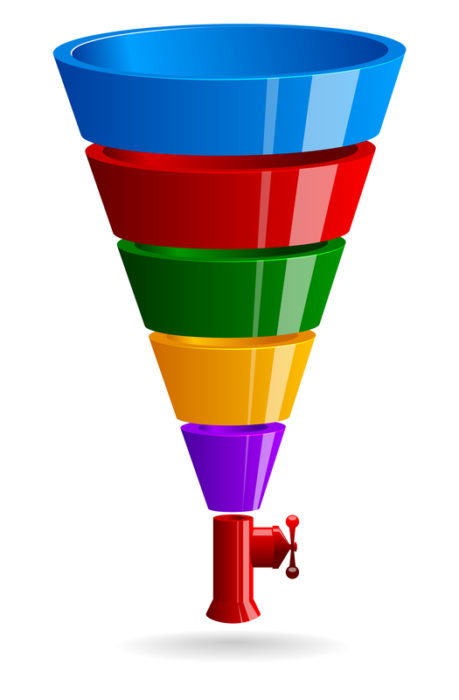
By Eric Hammis, courtesy of 3Sixty Interactive
Conversions are an extremely important metric in your marketing funnel. But don’t think a conversion necessarily means a sale. Conversions typically occur prior to sale, and it’s an indicator that someone moved further down the sales funnel.
Why Should I Care About Conversions?
The ultimate goal is to make a sale, so why the heck would we care about conversions? Before I explain why it’s important to track conversions, let me fill you in on what a conversion is. A conversion is an action taken by a visitor to your site. Those actions can include downloading a resource, filling out a contact form, signing up for a newsletter, etc. Of course, the definition of a conversion is different depending on the campaign.
But why do these matter? Well a conversion lets you know if your overall marketing funnel is working properly. It’s highly unlikely that someone is going to come to your site, go directly to a product page and make a purchase. That can happen, but it’s not a likely scenario, and that’s because a majority of your visitors are not going to be buy-ready.
So you have to move these visitors who aren’t buy-ready down the marketing funnel, and in order to accomplish this, you need information and touch points for your visitors. A conversion is a touch point, meaning it allows you to send information or learn information about your leads.
Another great aspect about conversions is it allows you differentiate visitors who are genuinely interested in your product or service from those who are not. If a visitor makes a conversion, that visitor is now a lead. Once you’ve determined a person is a lead, you can then focus on turning that lead into a sale.
Finding Problems With Your Site
Another great bonus from tracking conversions is it allows you to find problems within your marketing funnel. By tracking conversions, and the paths that your visitors took to get there, you can determine what is working. On the contrary, you can track which resources and forms aren’t converting, and follow the path to those pages and determine why it isn’t working. You can even replicate what is working to make sure every possible conversion is working smoothly in your marketing funnel.
Conversions Are Important, But Not Everything
Conversions are important. They are needed to turn visitors into leads, and leads into a sale. But it’s not the entire piece of the puzzle. While it’s a big piece of the puzzle, there’s many other pieces that can lead to a low conversion percentage. Your marketing funnel must be seamless with no holes along the way. By tracking your conversions, you’ll get a clear picture of where those holes are occurring and how to fix them.